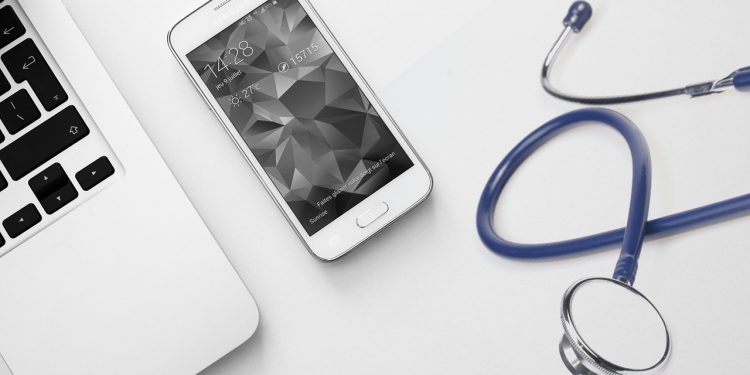Ways in Which AI and Iot Play an Important Role in Healthcare

The healthcare industry has undergone a significant transformation with the integration of Artificial Intelligence (AI) and the Internet of Things (IoT). These cutting-edge technologies have revolutionized the way medical services are delivered, enhancing patient care, streamlining operations, and improving overall efficiency. AI, with its ability to process vast amounts of data and recognize patterns, has become a powerful tool for diagnosis, treatment recommendations, and drug development. Machine learning algorithms can analyze medical images, patient records, and genetic data to assist doctors in making more accurate diagnostics and personalized treatment plans.
On the other hand, IoT devices, such as wearable health monitors, implantable sensors, and connected medical equipment, have enabled real-time data collection and remote monitoring of patients. These interconnected devices generate a wealth of data that can be analyzed by AI systems to track health conditions, detect early signs of illness, and provide timely interventions. The synergy between AI and IoT has the potential to revolutionize telemedicine, enabling remote consultations, virtual check-ups, and continuous monitoring of patients, particularly in rural or underserved areas. By leveraging these technologies, healthcare providers can deliver more efficient, personalized, and proactive care, ultimately improving patient outcomes and reducing healthcare costs.
Ways in Which AI and Iot Play an Important Role in Healthcare
The integration of Artificial Intelligence (AI) and the Internet of Things (IoT) has significantly transformed the healthcare industry, enabling a multitude of advancements that enhance patient care, streamline operations, and improve overall efficiency. Here are ways in which AI and IoT play an important role in healthcare today:
Remote Patient Monitoring
IoT devices, such as wearable sensors and implantable monitors, along with IoT healthcare software, have made it possible to continuously track patients’ vital signs, medication adherence, and daily activities. These devices transmit real-time data to healthcare providers, allowing them to monitor their patients’ conditions remotely. This technology is particularly beneficial for patients with chronic conditions, such as diabetes or heart disease, as it enables early detection of potential complications and timely interventions. Additionally, remote monitoring reduces the need for frequent hospital visits, improving patient convenience and reducing healthcare costs.
Disease Diagnosis
AI algorithms have become incredibly valuable in the field of disease diagnosis. These algorithms can analyze various medical data, including images, test results, and patient records, to identify patterns and anomalies that might indicate the presence of a particular disease. For example, AI systems can detect subtle changes in medical images, such as X-rays or MRI scans, that may be indicative of tumors or other abnormalities. Additionally, AI can process vast amounts of patient data, including symptoms, medical history, and laboratory results, to provide accurate diagnoses. This not only aids doctors in making informed decisions but also reduces the chances of misdiagnosis, ultimately leading to better patient outcomes.
Treatment Planning
One of the key advantages of AI in healthcare is its ability to recommend personalized treatment plans for patients. AI systems can analyze a patient’s medical history, genetic data, and the latest research findings to develop tailored treatment strategies. This approach takes into account individual factors, such as age, underlying conditions, and potential drug interactions, ensuring that each patient receives the most effective and safe treatment. AI can also continuously monitor a patient’s response to treatment and adjust the plan accordingly, maximizing the chances of a successful outcome.
Drug Discovery
The process of developing new drugs is complex, time-consuming, and expensive. AI has the potential to revolutionize this process by analyzing vast amounts of data from various sources, including scientific literature, clinical trials, and genomic databases. AI algorithms can identify potential drug candidates, predict their effectiveness, and simulate their interactions with biological systems. This not only accelerates the drug discovery process but also increases the chances of success, as AI can identify promising compounds more efficiently than traditional methods.
Predictive Analytics
AI models can analyze historical data, including patient records, epidemiological data, and environmental factors, to predict potential health risks, disease outbreaks, and resource requirements. This predictive capability allows healthcare providers to take proactive measures, such as implementing preventive strategies, allocating resources more effectively, and preparing for potential surges in demand. For example, AI models can forecast the likelihood of a flu outbreak in a particular region based on weather patterns, population density, and vaccination rates, enabling healthcare facilities to stock up on necessary supplies and personnel.
Virtual Consultations
Telemedicine platforms powered by AI and IoT have made it possible for patients to receive virtual consultations, reducing the need for in-person visits. These platforms use AI-powered chatbots or virtual assistants to gather initial information from patients, such as symptoms and medical history. IoT devices, like wearable sensors or remote monitoring equipment, can transmit real-time data to the healthcare provider during the consultation. This not only improves access to healthcare services, especially in remote or underserved areas, but also reduces the risk of exposure to infectious diseases and allows for more efficient use of healthcare resources.
Medication Management
AI systems can play a crucial role in optimizing medication dosages, identifying potential drug interactions, and ensuring adherence to treatment plans. AI algorithms can analyze a patient’s medical history, current medications, and other relevant data to determine the optimal dosage for each medication. Additionally, AI can cross-reference a patient’s medication list with a database of known drug interactions, alerting healthcare providers to potential risks and suggesting alternative treatments if necessary. AI-powered reminders and smart pill dispensers can also improve medication adherence, ensuring that patients take their prescribed medications correctly and on time.
Operational Efficiency
AI and IoT solutions can streamline various administrative tasks within healthcare facilities, improving overall operational efficiency. AI-powered scheduling systems can optimize appointment scheduling, reducing wait times and improving resource utilization. IoT devices can automate inventory management, ensuring that medical supplies and equipment are restocked promptly. Additionally, AI can assist in managing electronic medical records, facilitating seamless data sharing among healthcare providers and ensuring compliance with data privacy regulations.
Conclusion
The integration of Artificial Intelligence (AI) and the Internet of Things (IoT) in healthcare has revolutionized patient care and operational efficiency. From disease diagnosis to treatment planning, drug discovery, remote patient monitoring, and predictive analytics, AI and IoT have significantly improved healthcare outcomes. These technologies empower healthcare providers with advanced tools for accurate diagnosis, personalized treatment, and proactive patient management. Furthermore, by streamlining administrative tasks and optimizing resource allocation, AI and IoT enhance operational efficiency within healthcare facilities. As we continue to harness the power of AI and IoT, the future of healthcare holds great promise for improved access, quality, and effectiveness of care for patients worldwide.









